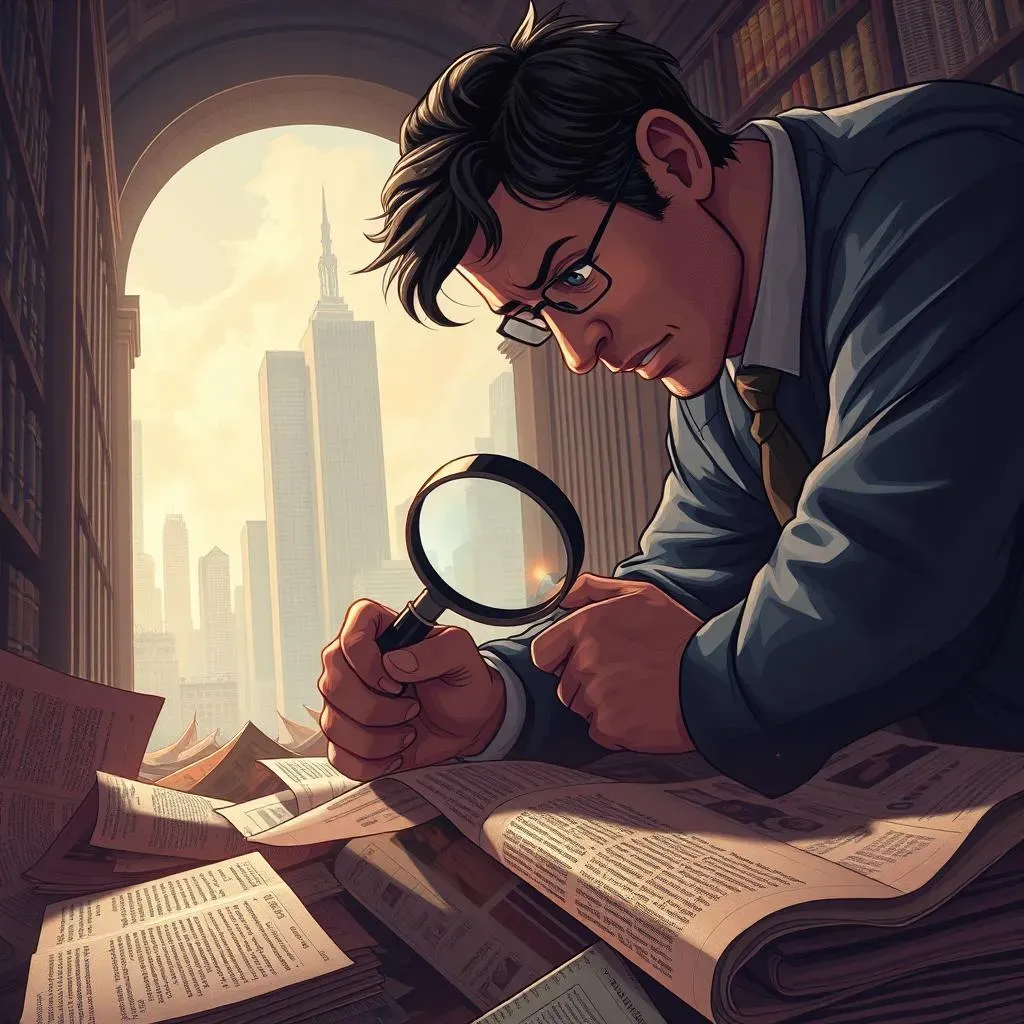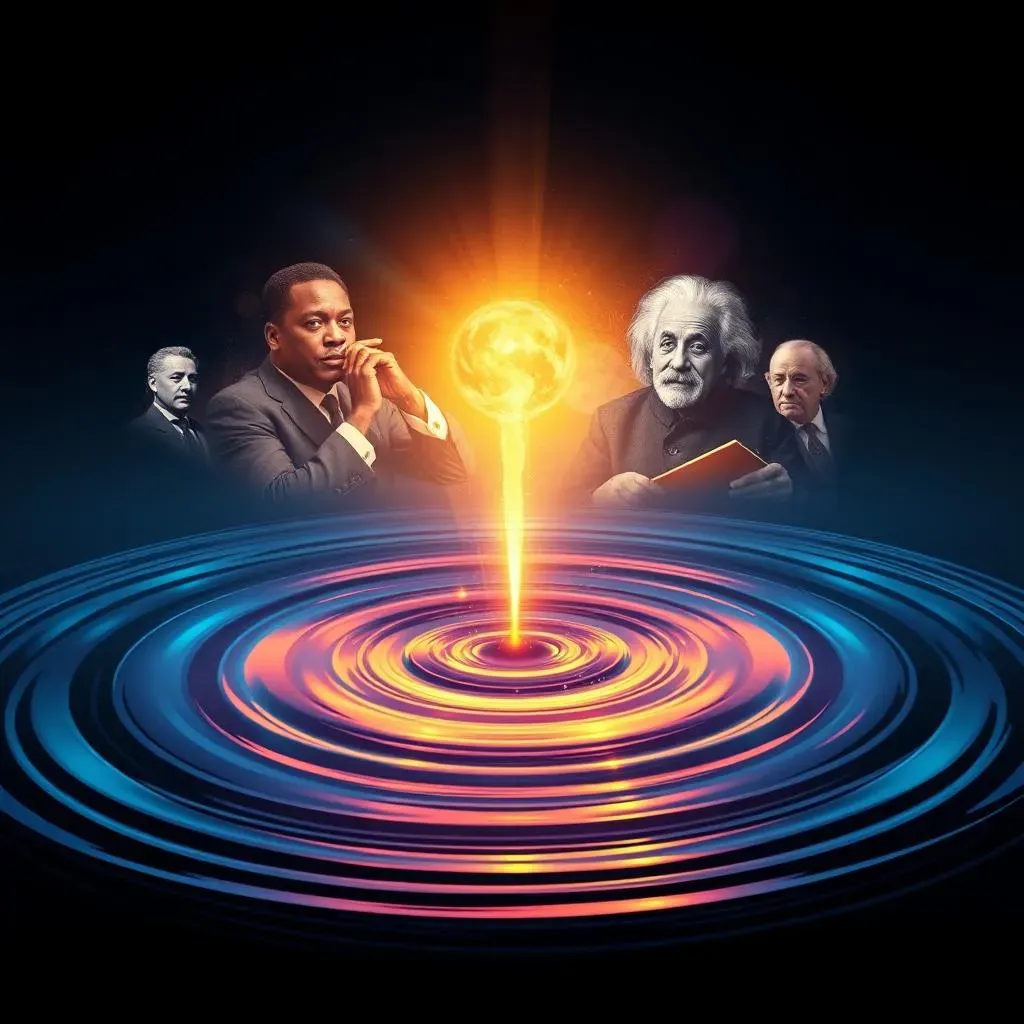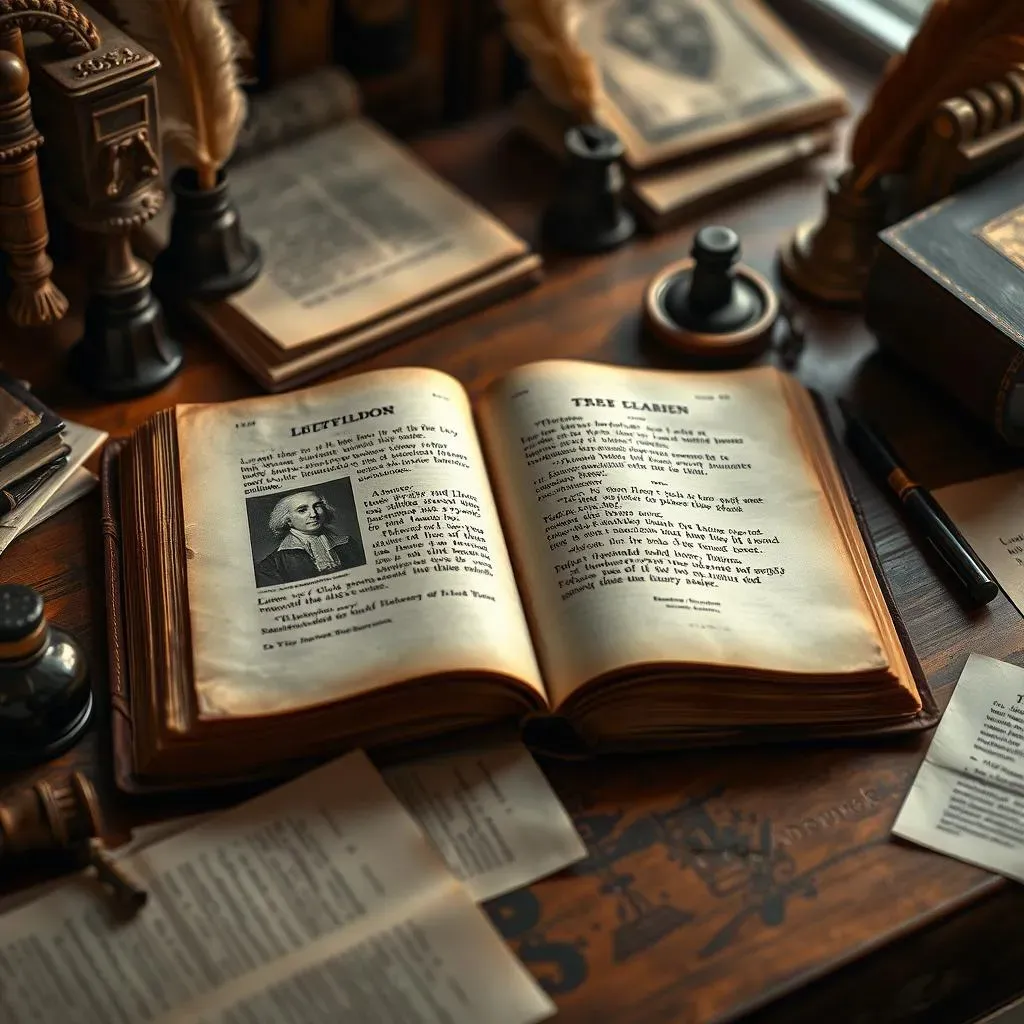Table of Contents
Ever wondered about the lives of those who shaped our world? From courageous leaders to brilliant artists, the stories of famous historical figures are filled with drama, intrigue, and profound impact. This article explores the fascinating world of biographies of famous historical figures, offering a journey through their triumphs and tribulations. We'll examine not only their well-known accomplishments but also the hidden details that often go untold – the personal struggles, the unexpected twists of fate, and the moments that redefined their legacies. Prepare to be captivated by the intricate tapestry of human experience as we delve into the lives of individuals who left an indelible mark on history. We'll uncover surprising insights, explore their lasting influence, and consider what we can learn from their journeys. Get ready to be inspired as we uncover the stories behind the names. This is more than just a history lesson; it's a chance to connect with the human spirit across centuries. So, let's embark on this captivating exploration together.
Exploring the Lives of Remarkable Individuals

Exploring the Lives of Remarkable Individuals
The Allure of Biography
So, you're diving into the world of biographies of famous historical figures? Fantastic! It's a rabbit hole of fascinating stories, isn't it? Think about it – each life is a unique adventure, a journey filled with challenges, triumphs, and unexpected turns. Reading about these individuals allows us to connect with the past on a personal level, to understand the complexities of human experience across different eras and cultures. We can learn so much from their successes and mistakes, their moments of brilliance and their times of despair. It's a truly enriching experience.
For example, consider the life of Marie Curie. Her dedication to science, despite facing immense societal barriers, is incredibly inspiring. Or take Nelson Mandela’s unwavering commitment to justice and equality, even after years of imprisonment. These are just two examples of the incredible lives waiting to be explored. There are countless stories of courage, resilience, and innovation out there, just waiting to be discovered. Want to find out more about lesser-known achievements? Check out our post on famous people's lesser-known achievements.
Historical Figure | Key Accomplishment | Lesson Learned |
|---|---|---|
Marie Curie | Pioneering research in radioactivity | Perseverance in the face of adversity |
Nelson Mandela | Fighting apartheid in South Africa | The power of forgiveness and reconciliation |
Different Approaches to Biography
One of the things that makes biographies so compelling is the variety of approaches authors take. Some biographies focus on the chronological order of events, offering a detailed account of a person's life from birth to death. Others might focus on a specific period or aspect of a person’s life, such as their early years, their career, or a defining moment. Still others might take a thematic approach, exploring a particular theme or idea through the lens of the person’s life.
Think about the different ways you could approach the life of Leonardo da Vinci. You could chronicle his artistic achievements, focusing on the creation of the Mona Lisa and The Last Supper. Alternatively, you could explore his scientific endeavors, focusing on his anatomical studies and engineering designs. Or you could delve into his enigmatic personality, exploring his unconventional lifestyle and his relentless curiosity. The possibilities are endless! Want to find some top-rated biographies? Check out our page on top 10 biographies of all time.
- Chronological
- Thematic
- Focused on a specific period
The Power of Personal Stories
What truly sets biographies apart is their ability to reveal the humanity of these remarkable individuals. Biographies aren't just about dates and accomplishments; they're about feelings, motivations, and relationships. They show us the struggles, the doubts, the moments of vulnerability that make these figures relatable and even more inspiring. Learning about their personal lives, their families, and their struggles often provides a deeper understanding of their achievements.
For instance, learning about Abraham Lincoln’s childhood poverty and his struggles with depression adds another layer to our understanding of his presidency and his leadership during the Civil War. Similarly, understanding Winston Churchill’s complex personality and his periods of intense self-doubt helps us appreciate his monumental role in leading Britain during World War II. These personal details enrich the narrative and allow us to connect with these figures on a human level. Explore more about their personal lives with our article on famous people's personal struggles.
Beyond the Headlines: Uncovering Hidden Stories

Beyond the Headlines: Uncovering Hidden Stories
Unearthing the Unexpected
Okay, so you've got the basics down – the major achievements, the famous quotes, the iconic images. But what about the stuff that doesn't always make it into the textbooks? That's where the real gold lies! Think about it: every famous figure had a life brimming with complexities, quirks, and unexpected turns. It's these hidden details that breathe life into their stories, making them relatable and truly unforgettable. It's not just about what they *did*, it's about *who* they were, beyond the public persona.
For example, did you know about Eleanor Roosevelt's secret correspondence with her husband's mistress? Or the surprising details of Leonardo da Vinci's personal life and hobbies? These hidden stories add layers of depth and nuance to our understanding of these individuals. To get a glimpse into the lesser-known facets of famous individuals, explore our post on unknown facts about famous people. It's like peeling back the layers of an onion – each layer reveals a new and fascinating aspect of their lives.
- Hidden relationships
- Unconventional hobbies
- Secret struggles
The Importance of Primary Sources
One of the keys to uncovering these hidden stories is to dive into primary sources. Forget relying solely on secondary accounts; get your hands dirty with letters, diaries, personal journals, and other original documents. These offer a raw, unfiltered glimpse into the lives of these figures, revealing their thoughts, feelings, and motivations in a way that no secondary account can truly replicate. It's like stepping into a time machine and hearing their voice directly.
Think about it – reading a letter written by Abraham Lincoln to his son offers a far more intimate understanding of his character than any historical analysis. Similarly, exploring the personal writings of Marie Curie reveals her deep dedication to science and her struggles as a woman in a male-dominated field. This access to primary sources allows you to form your own conclusions, rather than relying on interpretations formed by others. Want to know more about the early lives of famous figures? Check out our page on famous people's early life details.
Primary Source Type | Benefits | Challenges |
|---|---|---|
Letters | Direct insight into thoughts and feelings | Potential for bias or incomplete information |
Diaries | Personal reflections and experiences | May not be entirely accurate or objective |
Contextualizing the Narrative
Finally, remember the importance of context. Don't just focus on the individual; consider the historical, social, and cultural environment in which they lived. This broader context illuminates their choices, their motivations, and their impact on the world. It's the difference between simply knowing *what* happened and truly *understanding* *why* it happened.
For instance, understanding the social and political climate of 19th-century England is crucial to understanding the impact of figures like Queen Victoria or Charles Dickens. Similarly, understanding the socio-economic conditions of the American South is vital to appreciating the life and work of individuals like Harriet Tubman or Frederick Douglass. By placing these figures within their historical context, you create a richer, more nuanced, and ultimately more compelling narrative. Delve into the family backgrounds of renowned people by visiting our post on famous people's family backgrounds.
The Impact of Famous Figures: Shaping Our World

The Impact of Famous Figures: Shaping Our World
Ripple Effects Through Time
Hey, so you're looking at the impact of famous historical figures? That's a huge topic, but a really exciting one! It's not just about their individual achievements; it's about how those achievements rippled outwards, changing the course of history and shaping the world we live in today. Think about someone like Martin Luther King Jr. – his fight for civil rights didn't just affect African Americans; it sparked a global movement for equality and social justice. His legacy continues to inspire activists and leaders around the world.
Or consider the influence of someone like Albert Einstein. His theories of relativity revolutionized our understanding of the universe, and his work continues to shape scientific research even today. It's amazing how one person's ideas can have such a lasting impact! Want to learn more about people who changed the world? Check out our article on famous people who changed the world. It's all about understanding the long-term consequences of their actions and ideas – the domino effect, if you will.
- Scientific breakthroughs
- Social and political movements
- Artistic innovations
Beyond the Obvious: Unexpected Consequences
It's also important to consider the unintended consequences of their actions. Sometimes, the impact of a historical figure is far more complex and nuanced than we initially realize. For example, the Industrial Revolution, while bringing about incredible technological advancements, also led to significant social and environmental problems. Similarly, the colonization of various parts of the world, while expanding European empires, had devastating consequences for indigenous populations. Understanding these unintended consequences is critical for a complete picture.
This is where things get really interesting! We need to look beyond the simple narratives and dig deeper into the complexities of cause and effect. What were the long-term implications of their choices? How did their actions affect future generations? These are the questions we need to ask ourselves. You might also find our article on famous people's legacy analysis insightful. It's fascinating to see how the impact of a single individual can stretch across centuries, influencing everything from political systems to social norms.
Historical Figure | Intended Impact | Unintended Consequences |
|---|---|---|
Genghis Khan | Unification of Mongol tribes | Widespread destruction and loss of life |
Christopher Columbus | Discovery of a new trade route | Colonization and exploitation of indigenous populations |
Lessons from the Past: Inspiration and Guidance for Today

Lessons from the Past: Inspiration and Guidance for Today
Lessons from the Past: Inspiration and Guidance for Today
So, what can we *actually* learn from these amazing people? That's the million-dollar question, right? The beauty of studying biographies of famous historical figures isn't just about admiring their accomplishments; it's about extracting practical wisdom that we can apply to our own lives. We can learn about resilience from those who overcame immense challenges, about leadership from those who inspired change, and about the importance of perseverance from those who never gave up on their dreams. It's a treasure trove of life lessons, waiting to be unearthed.
Think about someone like Abraham Lincoln. His unwavering commitment to the Union, despite the immense pressure and opposition he faced, is a testament to the power of perseverance. Or consider Marie Curie's relentless pursuit of scientific discovery, even in the face of personal hardship. These individuals didn't just achieve greatness; they demonstrated the human capacity for incredible strength and determination. Want to learn more about people who overcame challenges? Check out our article on famous people overcoming challenges.
- The importance of perseverance
- The power of resilience
- The value of integrity
But it's not just about emulating their successes. We can also learn from their mistakes. By examining their missteps and failures, we can gain valuable insights into how to avoid similar pitfalls in our own lives. It's a reminder that even the most successful individuals faced setbacks and challenges. Their journeys weren't always smooth sailing; they stumbled, they fell, but they got back up and kept moving forward. This understanding of their failures helps us to approach our own challenges with greater empathy and understanding.
For example, consider the mistakes made by leaders throughout history. Understanding these mistakes can help us to develop better leadership skills and make more informed decisions in our own lives. It's about learning from the past to create a better future. This is where studying biographies becomes truly transformative. Find inspiration in their quotes by checking out our article on famous people's inspiration quotes.
Historical Figure | Key Lesson Learned from Failure |
|---|---|
Julius Caesar | Overconfidence can lead to downfall |
Napoleon Bonaparte | Underestimating your opponents can be fatal |